“What







David Cartwright, Optometrist and Chair, Eye Health UK
@Yourlaterlife

“What







David Cartwright, Optometrist and Chair, Eye Health UK
@Yourlaterlife

Two-thirds of us support good causes in our daily lives but, increasingly, people across the UK are looking to extend their charitable impact beyond their lifetimes. Even in a cost of living crisis, people are including donations in their wills.
The UK is a generous nation, and, in a post-pandemic landscape, people appear even more driven to make a positive impact on the world we leave behind; with 21% of people saying they feel more likely to support charitable causes in their lifetime and 19% wanting to leave the world a better place.1
Including a charity when making a will
However, times of economic uncertainty and financial constraints can make it difficult for people to follow through on their philanthropic intentions. For charities, these times of crisis can be a double-edged sword, with donations being cut at the very time their services are so urgently needed.
In a recent study by Charities Aid Foundation, 8 in 10 charities revealed that demands for services increased from last year, but less than half of those charities are confident they can meet those needs. This is where the rise of ‘Willanthropy’ (donating from your will) has proved so vital across the country, generating long-term funding and increasing charities’ resilience for whatever lies ahead.
Debunking myths and understanding tax incentives
Still, there are a few myths around this form of giving,
@MediaplanetUK
such as the belief that it has to be a considerable sum or that it’s only an option for those without children. In reality, as a supporter, you can leave any amount to any charitable cause in your will, alongside gifts for family and friends. Whether you wish to donate a set sum, percentage or residual amount, it’s important to talk to a solicitor or professional will-writer.
With one in four professionally written wills now including a gift to charity,2 advisers are also helping to ensure that charity supporters benefit from the relevant tax incentives. In the UK, any gift to charity in a will is free from inheritance tax. If you donate 10% or more of your estate to charity, the total amount of inheritance tax you pay reduces from 40% to 36%.
Charities you can help in your will
For charity supporters, it can be such an empowering way to give. From local hospices to animal rescue services and mental health helplines to homeless shelters, every charity can benefit from gifts in wills.
Contact information: uk.info@mediaplanet.com or +44 (0) 203 642 0737
Find out more about how to pass on something wonderful through a gift in your will by visiting remember acharity.org.uk
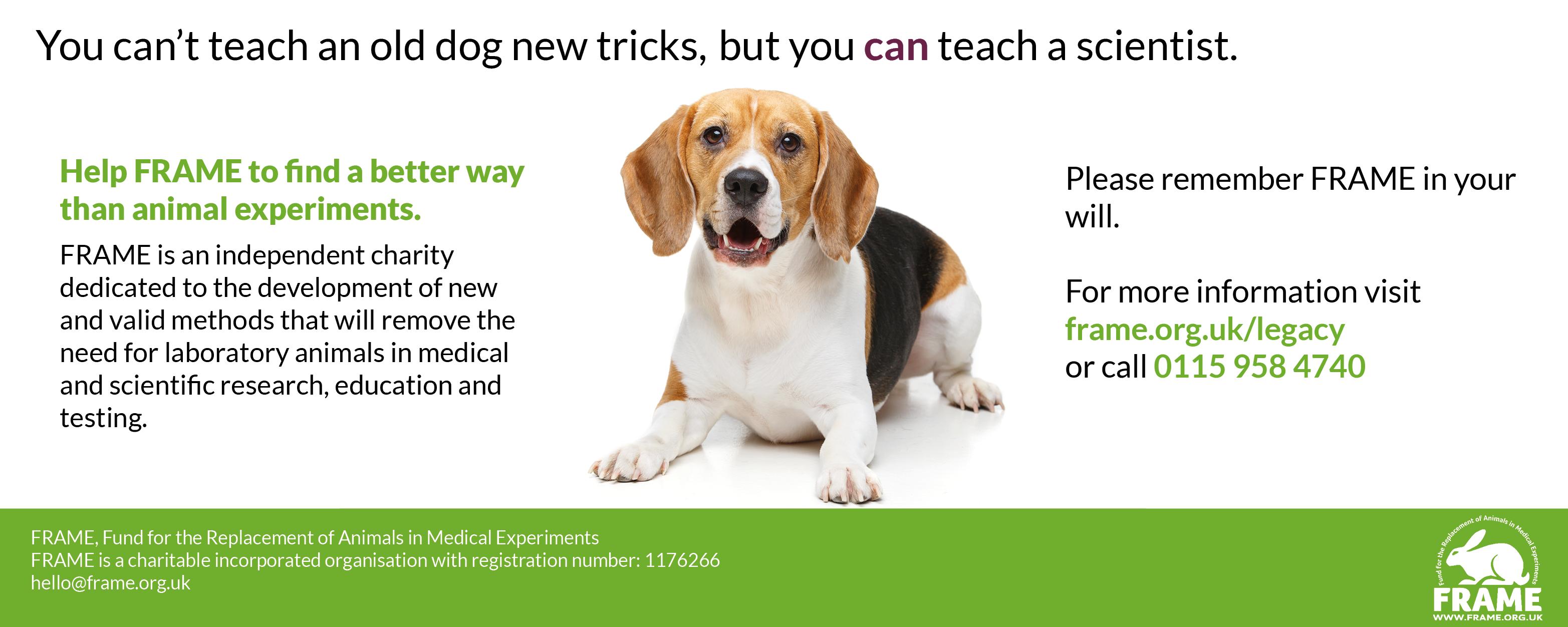
Please recycle
Project Manager: Jake Williams jake.williams@mediaplanet.com
Project Manager: Emma Shahbazi emma.shahbazi@mediaplanet.com
Business Development Manager: Jack Adamson Managing Director: Alex Williams Country Manager UK: Ellie McGregor | Head of Print & Design: Thomas Kent Designer: Aimee Rayment Content Editor: Angelica Hackett O’Toole | Head of Digital Operations: Harvey
O’Donnell Paid Media Strategist: Jonni Asfaha Social & Web Editor: Henry Phillips Digital Assistant: Carolina Galbraith Duarte | All images supplied by Gettyimages, unless otherwise specified | Contact information: uk.info@mediaplanet.com or +44 (0) 203 642 0737
If you donate 10% or more of your estate to charity, the total amount of inheritance tax you pay reduces from 40% to 36%.
It’s tough out there for charities. The work they do is vital, yet many charitable organisations struggle to provide support services to people in need without funding. Austerity, and now the cost of living crisis, has put some in a more challenging situation.
A way to contribute to a cause
Legacy giving — gifting money to a charity in your will — is so important for good causes. Donating this way is easy to do, and even a small amount can make a big difference. However, consumer polls found that even though 40% of people aged 40 and above would happily give a percentage of their estate to charity, only 20% said they have actually done this. While the legacy market currently stands at a relatively buoyant £3.9 billion, more charities could provide the care and support needed if more people left gifts.
“Legacy giving provides over a third of our income and funds nearly 40% of our services. That means this revenue stream is critical for us to continue our work supporting those affected by cancer,” reveals James Stebbings, Head of Legacy Income at Macmillan Cancer Support.


Funding vital cancer care and support services
With cancer numbers rising all the time (it’s estimated that 4 million people in the UK will be living with the disease by 2030), the work of Macmillan Cancer Support is more important than ever. That’s why they are working to encourage legacy giving, to help meet this growing need.
“We provide emotional, physical and financial support for people living with cancer,” says Stebbings. “We’re running campaigns such as ‘What Are We Waiting For?’ which aims to reduce cancer waiting times. We have a support line and health professionals. We want to make sure that anyone living with cancer has access to the right care and that
their needs are being met. All of these things need funding, which is why we need legacy income. Many support services depend on gifts in wills.”
Anyone can leave an extraordinary gift
The good news is that anyone can leave a gift to a charity in their will. All they have to do is work out which cause (or causes) they want to help. “What’s heartening about this form of giving is that so-called ‘ordinary’ people are able to leave extraordinary gifts,” says Stebbings.
“For example, a chap from Blackburn, Lancashire, had less than £1,000 in his bank account when he died. But he had bought a three-bedroom house in the 1940s; his wife had pre-deceased him, and he had no children. So, he left his entire estate — £75,000 — to Macmillan Cancer Support. Now, that was a massively generous gift from someone who may not have been financially able to support us each month with a £5 or £10 donation. He did something incredible — a final act that will help so many people.”
To help potential supporters understand how to leave their legacy, they can turn to the charity’s free ‘Gift in Wills’ guide. It provides practical tools to support you through the process, including various ways to write a will and some inheritance tax considerations.
The guide also explains why you should consider leaving a gift in your will to the cancer charity. “Sadly, cancer will affect one in two of us in our lifetimes,” says Stebbings. “So, without any obligation, please consider leaving a gift in your will to our charity. It’s a way to think about your children and grandchildren and help us be there for people affected by cancer in the future. It’s a lasting legacy.”
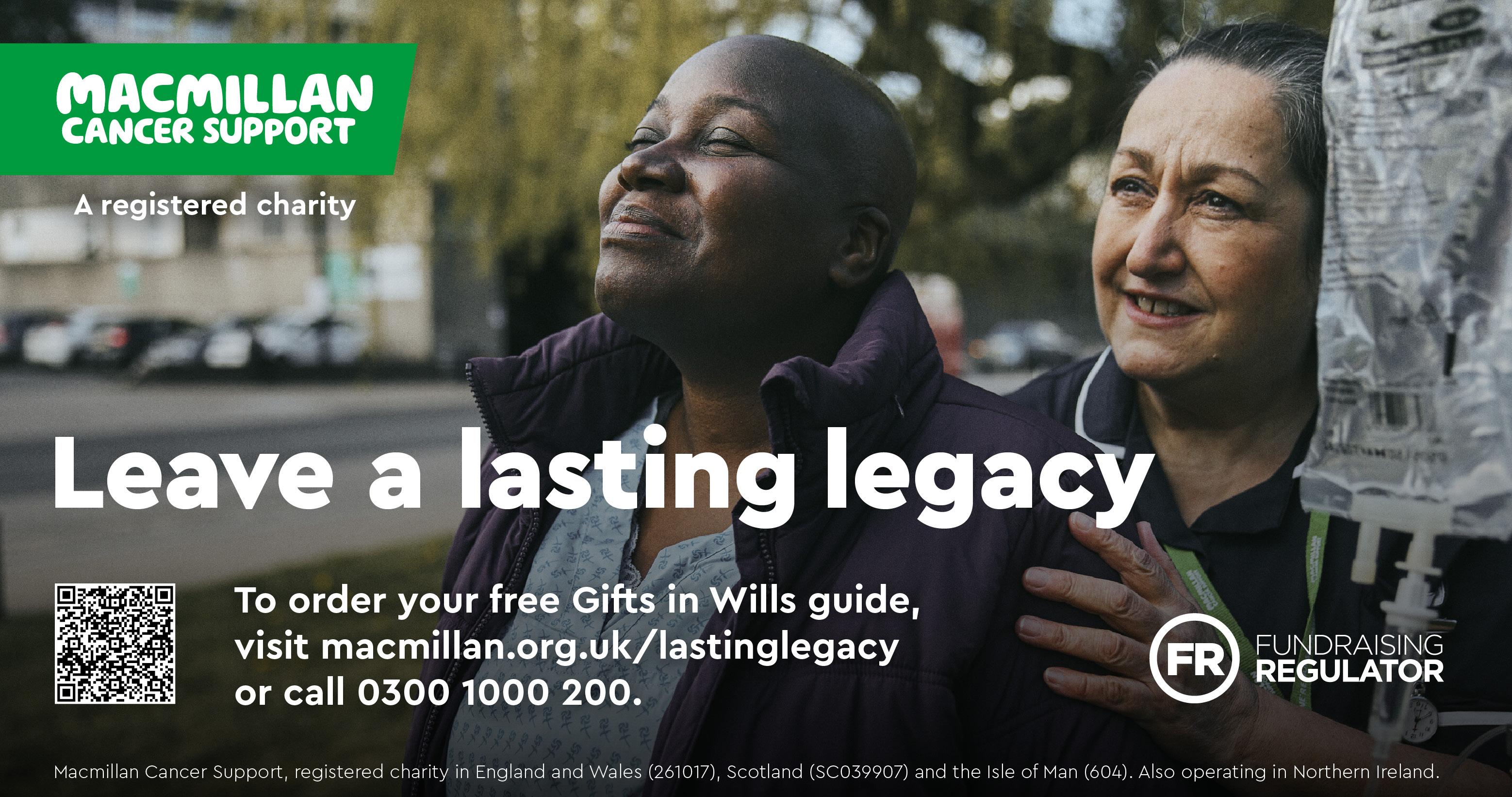
Patients with serious eye conditions, such as front-ofthe-eye disease, are being offered placental tissue in a contact lens to aid treatment — avoiding surgery and embracing a natural approach.
Arevolutionary amniotic membrane applied by a contact lens offers improved treatment for front-of-theeye disease. The amniotic membrane (or amnion) is the innermost layer of the placental sac that protects the foetus in the womb. It has been used as a natural healing aid for wounds and diseases for more than a century.
With eye conditions, the amnion is placed over the corneal surface to help with healing. It protects the eye from the outside environment and prevents immunological inflammation. While this is traditionally sutured over the eye in a surgical process in hospitals, a new approach sees this applied via specially designed contact lenses in an outpatient or primary care setting.
Regulated to aid healing
Dr Andrew Hopkinson is the Co-Founder and Chief Scientific Officer of NuVision Biotherapies, which develops and manufactures eye products using amnion. He explains that the amnion, collected from consenting women undergoing caesarean, does not trigger an immune response. It is upcycled, decontaminated, cleaned and processed for medical applications, such as ocular transplantation to aid healing and recovery in a highly regulated process. The contact lens applications provide a simple and comfortable methodology for holding the tissue at the eye surface.
“In ophthalmology, it is used to treat front-of-the-eye disease to reconstruct and replace lost tissue or support healing and prevent inflammatory damage,” he adds. Hopkinson says the tissue must still be fitted by an ophthalmologist or other healthcare professional, but the process can be conducted in non-surgical settings.
Benefits and other uses
The amniotic membrane is left in place until healing is complete. Though the latest data shows high success rates, a second treatment can be applied if required. Moreover, it is a cost-effective option for healthcare services and more convenient for patients.
Due to the ease of application, this technique is being considered for a broader profile of patients with ocular surface disease. Hopkinson concludes: “It’s an exciting opportunity to expand the availability of amnion outside conventional hospital ophthalmology.”

Our research at the College of Optometrists* showed that 50% of people say that the cost of living will have an impact on how they care for their eyes in the future. A further 22% of people have admitted to postponing or cancelling an appointment in the past year based due to cost.
People need to be aware of the ways to access sight tests and necessary eyewear. It’s troubling to know that people’s eye health may be impacted by the cost of living crisis. We urge anyone due a sight test or with any eye problems, such as a change in vision, to prioritise it and contact an optometrist for advice.
Eye tests don’t have to be expensive; some people are entitled to an NHSfunded sight test. However, only 50% of respondents are aware that people under 16 are entitled to them, and only 48% realise that sight tests are funded for those over 60.
optometrist for more information. In general, you are entitled to an NHS-funded sight test if you are:

• Aged under 16 or aged between 16 and 18 and in full-time education
• Aged 60 or over
• Diagnosed with diabetes or glaucoma
• Aged 40 or over and have a first-degree relative with glaucoma
• Deemed at risk of developing glaucoma
• Registered blind or partially sighted
• Have a complex lens prescription
• On certain benefits or low income
Emergency eye concerns
Even if you are not due for a sight test but have eye health concerns, such as a sudden red eye, many practices offer an NHS-funded emergency eye service where you can get diagnosed and treated quickly. Contact an optometrist right away if you experience worrying symptoms.
*Research conducted by Atomik Research on behalf of The College of Optometrists in May 2023
WRITTEN BY Mark NichollsOur research also showed that one in five (21%) are concerned they will have to delay booking sight tests for themselves or their children until they can afford any necessary glasses or lenses. Early detection of eye problems is very important, especially for children. We urge parents not to be put off by cost; even if your child does need glasses, they will be entitled to an NHS optical voucher to help towards the cost.
Who
Many people can access an NHS-funded sight test. While access is universal in Scotland, eligibility varies across the rest of the UK, so contact your local
For more information on NHS-funded sight tests and to find your local optometrist, visit lookafteryoureyes.org
WRITTEN BY Dr Paramdeep Bilkhu, MCOptom Clinical Adviser, The College of Optometrists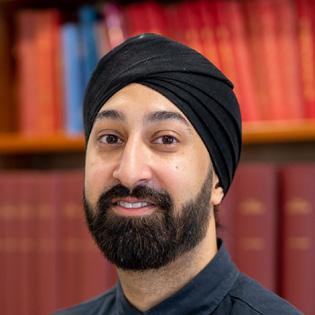
How placental tissue can enhance treatment for front-of-the-eye diseaseINTERVIEW WITH Dr Andrew Hopkinson Co-Founder, Chief Scientific Officer, NuVision Biotherapies Recent research shows that people are avoiding a visit to the optometrist based on the potential costs. However, eye support is available for some.
Early detection of eye problems is very important, especially for children.
The benefits of cataract surgery
Cataract surgery has a very high success rate and is the most common operation performed in the UK. During the surgery, your cloudy natural lens is removed and replaced with an artificial intraocular lens (IOL), tailored to your vision needs. This procedure typically takes less than 20 minutes and is virtually painless.
Eye drops are used to numb your eye before the surgery, which is performed as a ‘day case’ — meaning you can go home on the same day. After surgery, you’ll be able to get back to doing the hobbies you love, enjoy television and reading and feel safer driving at night. You’re also less likely to experience trips and falls.
Cataracts are a common eye condition with readily available treatment. The only way to get rid of them, however, is through quick and painless cataract surgery.
Cataracts can significantly impact your daily life, but the good news is that effective treatment is readily available. As the condition is so common, it’s important to know what cataracts are, how they can affect your quality of life and the transformative benefits of cataract surgery.
The natural lens in your eye contains proteins that change as you age. The first sign of this is often that you need reading glasses because the lens becomes stiff and unable to focus as well as it used to. Eventually, these changes cause the lens to become cloudy and lose its transparency — this is a cataract. Cataracts typically develop gradually and get worse over time, as part of ageing, but can also be caused by factors like genetics, certain medications or previous eye injuries.
What are the symptoms of cataracts?
Symptoms include:
• Blurred or misty vision
• Difficulty driving at night
• Difficulty watching television and reading
• Finding yourself dazzled by sunlight and bright lights, such as car headlights
• Frequent changes to your glasses or contact lens prescription
How do cataracts affect everyday life?
The effects can be significant, with symptoms making activities like reading, driving, watching television and enjoying outdoor scenery a challenge. You can struggle to see detail, particularly when the contrast is poor or light levels are low. Cataracts can diminish your quality of life and limit your independence — but, fortunately, cataract surgery is widely available.
Recovery after cataract surgery
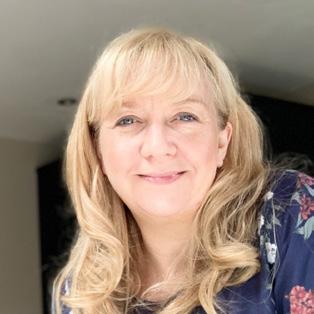
The recovery period following cataract surgery is relatively short. Most patients experience improved vision within a day or two, and any discomfort is typically mild and temporary. You’ll be able to resume most activities within a week. Some people find that they no longer need glasses for certain activities while others may still benefit from them for specific tasks.
Cataract surgery can be a lifechanging procedure, helping you to see the world in a whole new light. If you suspect you have cataracts or are experiencing any of the symptoms mentioned above, book an appointment with your optometrist as soon as possible.
Choose the right hospital for cataract surgery

SpaMedica’s dedicated eye hospitals specialise in NHS cataract surgery. Our waiting times are just four to eight weeks — well below national averages. All of our hospitals inspected by the Care Quality Commission (the independent regulator of health and social care in England) have been graded as ‘Good’ or ‘Outstanding.’
We put patient care at the heart of everything we do, which is why we have received over 13,000 five-star patient reviews on the NHS website. We offer a free transport service for patients who don’t have anyone to drive them to and from their appointments — and with 50 hospitals across the country, you won’t have to travel far.
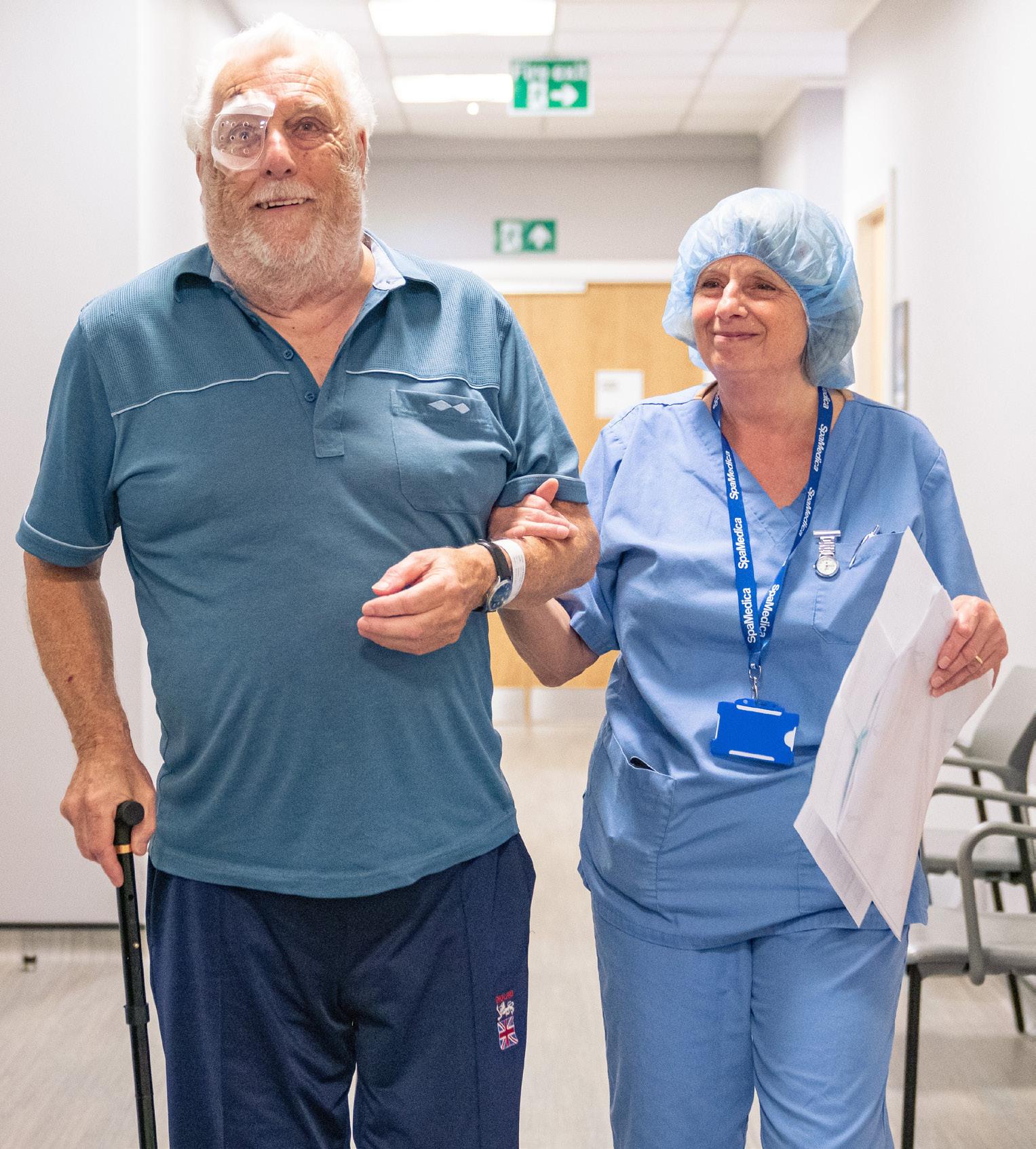
Cataract surgery can be a life-changing procedure, helping you to see the world in a whole new light.

A free, confidential benefits calculator found online can help older people check their entitlement, as well as other benefits.
Are you, or someone you know, aged over 66 and on a low income? If so, spending just 10 minutes on the free, online Turn2us Benefits Calculator will tell you about a whole host of crucial welfare benefits you and your family should be entitled to.

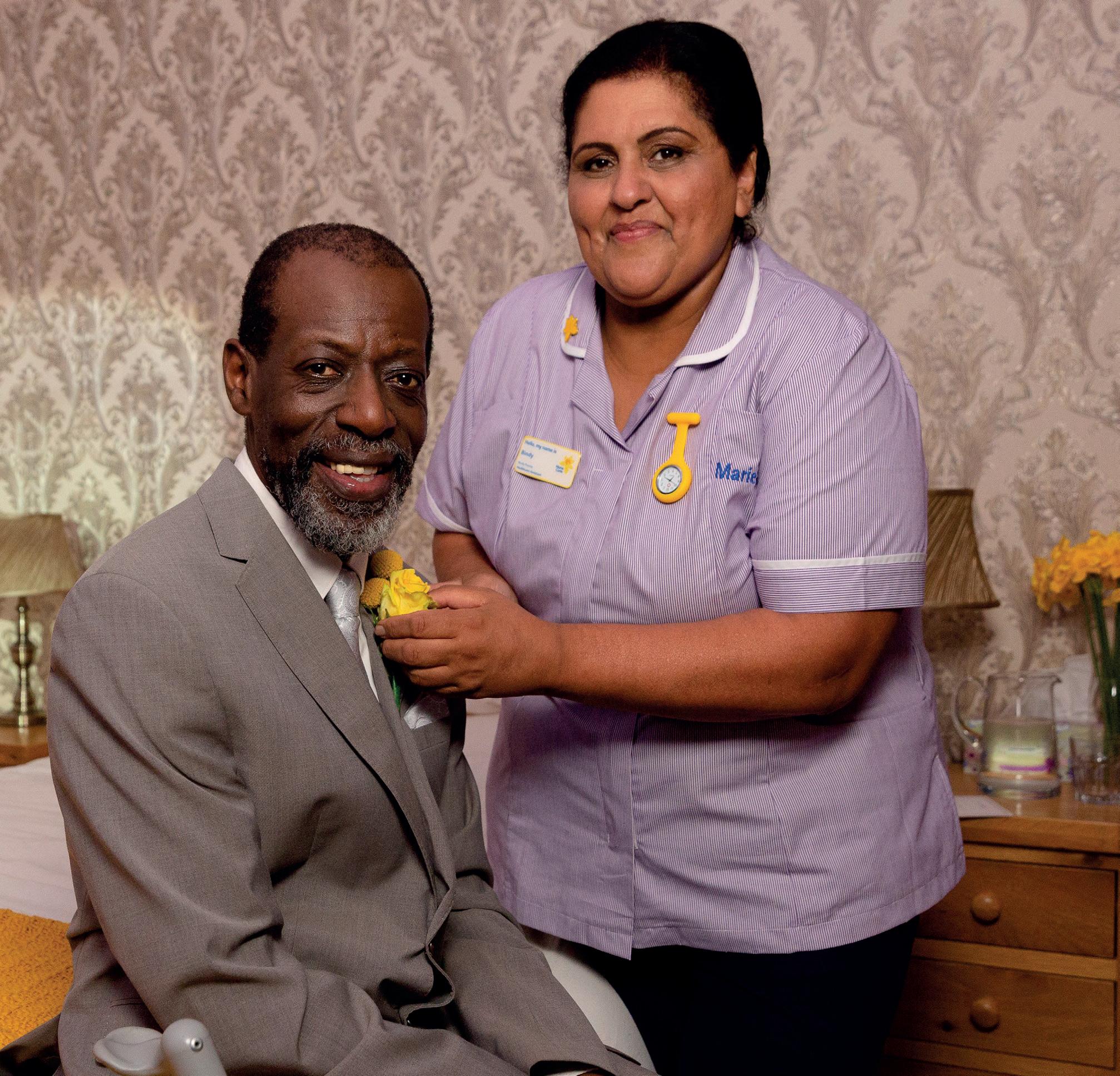
See what benefits are waiting for you
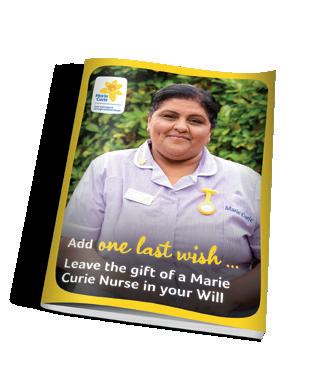
Turn2us is a charity working for everyone to have financial security. In just the past year alone, more than 300,000 people over the state pension age used our online Benefits Calculator to find out what additional benefits and support they can get. One in seven of those (39,235 people) found out they were eligible for Pension Credit which, at an average of £3,500 per person per year, adds up to more than £137 million in extra state benefits for pensioners on low incomes.
Who is eligible for Pension Credit?
Research shows lots of pensioners don’t know Pension Credit exists, and many others rule out finding out as they assume they’re not eligible because of their savings or owning a home. The reality is that a single pensioner getting by on an income of less than £201.05 a week — or a couple with under £306.85 a week — could be eligible even if they’re homeowners with savings of up to £10,000. Don’t miss out when you could be entitled to thousands of pounds of unclaimed benefits.
one last wish ... to be at his daughter’s wedding day.”

“Malcolm hadWRITTEN BY Michael Clarke Head of Information Programmes, Turn2us The Turn2us Benefits Calculator enables anyone in the UK to check what benefits they are entitled to claim — not just pensioners. Find out what you are entitled to at turn2us.org.uk or scan the QR code
Jo Miskin, Parent Talk Manager, talks about Action for Children’s dedicated parenting advice service and how vital it is.
How did this parenting advice service start?
Action for Children’s Parent Talk service was designed with parents and carers in mind. We knew there was a need for oneto-one support, and we wanted to provide free online help from trained family support workers. We’ve grown since launching in 2020. Last year, we reached over 500,000 parents and carers.
Who can use the service, and where can they find it?

Anyone with a child aged 0–19 can use the service — you can find Parent Talk at parent-talk.org.uk. Parents or carers of children and young adults aged up to 25 with special education needs and disabilities (SEND) or additional needs can access the service, too. The service is completely free.
How does the online service help?
I think the most valuable thing we can do for parents is to provide a listening ear. It’s nice to know you’re not alone. We believe parents are the experts, so we’re here to help them explore and unpack things — to be curious. There are also articles for parents to read in their own time. We understand parents may not have the time to talk to someone at that moment. So, whether you’re looking for help with your toddler’s sleep or how to support your child with their mental health, we have articles to help.
What’s your favourite thing about the service?
That we are inclusive. It doesn’t matter where you are in the UK, we’re here for you — ready to help whenever you need it.
What are the future plans for Parent Talk?
As the need for our service grows, we’d like to expand. We’re evolving and listening to the different problems parents face and working hard to support them in the best way we can.
A charity that supports young musicians from low-income families was founded thanks to a gift left in a Will. Legacy giving continues to fund the important services it offers.

Any young person who wants to pursue music should have the chance to do so,” says Hester Cockcroft, Chief Executive at Awards for Young Musicians (AYM). “They shouldn’t be held back simply because of their financial or social circumstances.”



Support for aspiring young musicians
Unfortunately, learning a musical instrument can be expensive — and prohibitively so, in some cases. What’s more, cutbacks to arts and music programmes in schools mean that some young people don’t get the chance to begin a musical education, let alone continue with one.
Awards for Young Musicians is a charity that supports talented young musicians from low-income families with funding and other assistance so that they can fulfil their creative potential. For example, funding could help a young musician hire or buy an instrument — or pay for lessons, travel or exams. The charity also offers young people mentoring and music-making opportunities and awards days where they can network with fellow musicians. It also works closely with the music education sector through training, advocacy and research.
Charity that was founded on legacy giving Raising enough money to meet needs is always a challenge — particularly in the current climate — and AYM partly relies on fundraising activities and donations from the public to provide the help it offers.
Some donations are left as gifts in Wills which, notes Cockcroft, are very welcome and extremely apt. That’s because Awards for Young Musicians was founded in 1998 after musician and violin specialist Robert Lewin died, leaving his valuable collection of instruments to fund musical scholarships for young people. Michael Lewin, Robert’s nephew, is now AYM’s founding Trustee.
“I doubt Robert would have thought that his final act of generosity and kindness would help found a charity that has supported more than 4,000 young musicians over the last 25 years,” says Cockcroft. “We want to continue to offer that support for years to come. Legacy funding helps secure these young people’s musical futures.”
Sand dams capture and store water in the world’s driest regions, providing a vital source of clean, safe water for vulnerable, drought-affected communities.


Asand dam is a concrete wall built across a sandy riverbed that can capture up to 40 million litres of water, replenishing every rainy season. That water is stored safe from disease and evaporation within sand. One sand dam provides enough year-round water for over 1,000 people and lasts upwards of 60 years with no maintenance costs once built.
Sand dams take burden off women and children
Sand Dams Worldwide supports some of the world’s most deprived people to transform their own lives with sand dams and climate-smart agriculture. Veronica, 72, from Kenya, used to wake up daily at 6 am to prepare her children for school. She’d then set off to fetch water from the nearest river — a 10-km, hazardous round-trip taking over nine hours to complete.
As Veronica gets older, she has to bring her children with her to help, meaning they miss school. The water collected is often dirty and contaminated with disease. However, by building a sand dam with her community and applying climate-smart farming methods, with support from Sand Dams Worldwide and its local partners, Veronica has created lasting change for her family.
WRITTEN BY Jo Miskin Parent Talk Manager, Action for Children
Protecting livelihoods and supporting families Veronica can now live her later life with more water and food security. She explains: “No more cases of waterborne diseases, thanks to having clean water, and my farm is more productive since the training. I can now grow and sell surplus crops, using the money to pay school fees for my children and grandchildren — who have time to study and play now that our water challenges are over.”
Donations to Sand Dams Worldwide enable more sand dam and climate-smart agriculture projects to take place, helping families and older people like Veronica to restore degraded land, rebuild livelihoods and regreen environments for generations to come.
WRITTEN BY Tony GreenwayBuilding sand dams: how to help create lasting change in poor dryland communities
Why legacy giving strikes the right chord for young musiciansINTERVIEW WITH Hester Cockcroft CEO, Awards for Young Musicians


High inflation has led to accelerating prices for everything; but for older people, it has been the rising cost of energy that’s the hardest to bear.
When the nights start to draw in, winter can’t be too far away. Unfortunately, at Age UK, we know that for many older people, the changing seasons will be triggering acute anxiety about managing through the colder months to come.
Cost of energy in winter and health concerns
As we get older, we tend to feel the cold more. In addition, ageing bodies don’t respond as well to temperature extremes, making it important to stay adequately warm — especially if you have lung or heart problems. That was challenging last year because of soaring prices — and it threatens to be this winter, too.
People pushed to choose either to heat or eat
To make things worse, the UK has some of the oldest housing stock in Europe, that’s expensive to heat. A major national insulation programme that keeps bills down and helps us meet our net zero commitments is long overdue.
In the meantime, energy price inflation has overwhelmed many households on low and middle incomes. Many older people have faced a choice between ‘heat or eat’ since the crisis began.
Government must provide adequate support
The Government’s support with energy bills last winter made a crucial difference, as did its decision to activate the ‘triple lock,’ so the State
Pension kept pace with inflation. We will be pressing Ministers to take similar action this year. But even if we succeed, the chances are it will not be enough for everyone. Some older people have exhausted their savings, or ‘maxed out their credit cards,’ leaving them even more exposed to high energy prices.
Although many people are aware of both dementia and Parkinson’s, it’s less well-known that people with Parkinson’s are more likely to develop certain types of dementia.
WRITTEN BY Rowan Wathes Associate Director, Parkinson’s UKAround three in 10 people with Parkinson’s have Parkinson’s-related dementia. There are two main types of dementia that can affect people with Parkinson’s — Parkinson’s dementia and dementia with Lewy bodies. These two have the same symptoms.
Parkinson’s dementia and dementia with Lewy bodies symptoms
• Difficulty with visual and practical tasks, such as reading clocks or putting on trousers correctly
• Slowness in thinking, difficulty finding words or trouble concentrating
• Changes in thinking during the day: sometimes being alert but other times being confused
If you are worrying about your energy bills, do not despair or think that the only way out is to turn the heating off. Your energy company is obligated to support you, and there are other sources of help. For example, millions of older people are not receiving all their welfare entitlements because they do not claim them. Benefits like Pension Credit can make a huge difference.
Where to start? Through Age UK’s campaign, ‘Know What To Do,’ we want older people to know that no one needs to cope alone. We are here to help and know what to do. You do not have to face this crisis alone.

To find out more, visit parkinsons.org.uk or call the helpline on 0808 800 0303
Join Parkinson’s UK, Alzheimer’s Society and Neurology Academy in urging the Secretary of State for Health and Social Care to fund training in Parkinson’s-related dementia for health professionals in England by adding your name to a joint online letter that can be found via the QR code below:
• Changes in sleeping patterns (for example, taking more naps during the day despite getting a normal amount of sleep)
• Visual hallucinations and mistaking objects for other things (for example, a pile of clothes might look like a dog)
• Being less engaged, or finding you do not have as much interest in the activities you used to enjoy (apathy)
• Anxiety, depression or feeling agitated
Getting help and support for Parkinson’s dementia
It is important to note that forgetfulness does not necessarily mean someone has Parkinson’s dementia. If you suspect that you or a loved one is showing signs of the condition, consult your GP as soon as possible.
Parkinson’s UK offers a range of support for people with Parkinson’s and their friends and family — from online advice and a free, confidential helpline to local support groups.
Help improve care for Parkinson’s dementia
Research from Parkinson’s UK found that only 14% of health professionals feel they have sufficient training in Parkinson’s-related dementia, and 60% say they need more.
Many older people have faced a choice between ‘heat or eat’ since the crisis began.

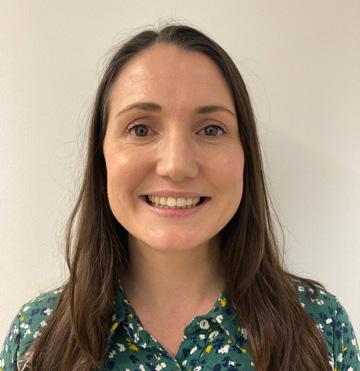
If you or a loved one are living with dementia, this often means thinking about updating your Will, setting up lasting powers of attorney and planning for how future care needs can be met.
 WRITTEN BY Felicity James Legacy Relationship Manager, Alzheimer’s Research UK
WRITTEN BY Felicity James Legacy Relationship Manager, Alzheimer’s Research UK
We should all be regularly reviewing our wishes for what we want later in life. For people with dementia, it is important to do this sooner rather than later, to allow individuals autonomy and a say over their future. Whether you are putting your own affairs in order or supporting a loved one with dementia, knowing that wishes and plans have been organised will, hopefully, help give you peace of mind.
At Alzheimer’s Research UK, we have developed an information pack to help you make plans for the future. It contains six factsheets designed
to answer some common questions about Wills, inheritance tax, lasting powers of attorney, planning for future care and more. Packaged in a handy folder, the pack also includes a Will planner, checklists and space for you to write and collect your own notes and contacts.
The UK’s leading dementia research charity Dementia robs us of everything that matters. Our memories. Our connections. Our story. If nothing changes, one in two of us will be affected by dementia in our lifetime, either by caring for someone with the condition, developing it ourselves or both.
Alzheimer’s Research UK exists to change that. We’re investing in the best research, powering the most forward-thinking scientists and joining forces with world-class organisations. We won’t stop until everyone is free from the heartbreak of dementia.
Telephone: 01223 896 606
Email: giftsinwills@alzheimersresearchuk.org
Website: www.alzres.uk/later-life-plan
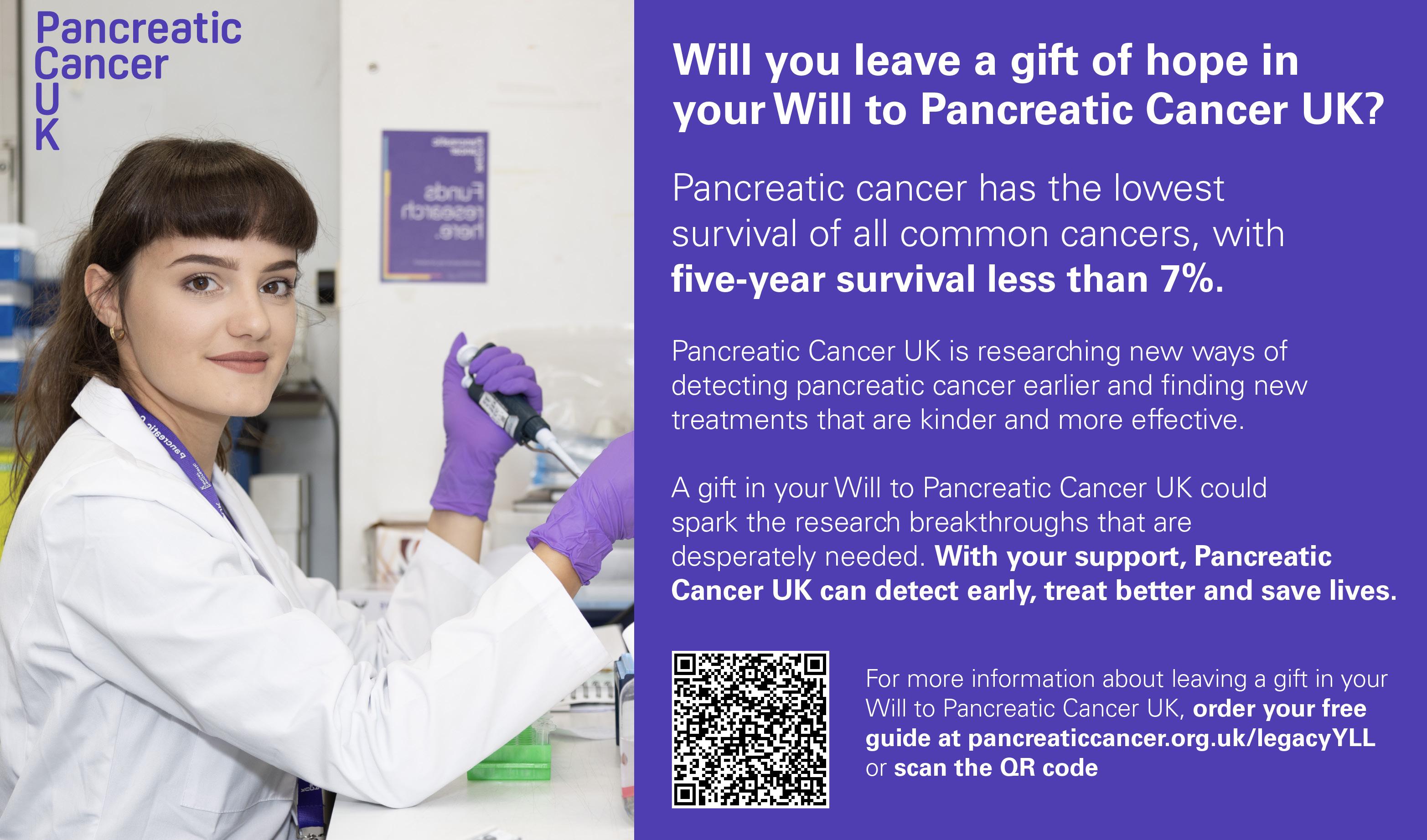

For National Eye Health Week 2023, Glaucoma UK is encouraging people to dedicate one minute of their time to learning about glaucoma, which could save their sight in the future.

Save your sight from glaucoma

Glaucoma is a group of common eye diseases that slowly damage the nerve that takes information from your eye to your brain. Left untreated, glaucoma causes gradual sight loss. With early detection and treatment, most people with glaucoma keep good sight for life.
Some people are at higher risk
Anyone can develop glaucoma, but
it gets more likely as you get older. You’re at higher risk if you have a close family member with glaucoma or you’re from an African-Caribbean or East Asian ethnic background.

Silent thief of sight

Most glaucoma develops slowly, without symptoms early on, making it hard to notice sight being lost. Routine eye tests at your local high street optician check for signs of glaucoma, and they’re the only way to detect glaucoma early.
Slow down sight loss
Treatments for glaucoma slow down future sight loss, but any sight loss you already have is permanent.
The most common treatments are laser treatment or eye drops. Early diagnosis and treatment help make sure you have good sight for life.
How to protect your sight
Glaucoma cannot be cured, but you can protect your sight. Go for routine eye tests at your local high street optician at least once every two years — unless you’re advised differently by a medical professional — so that if you have glaucoma, you can start treatment early. If you have any concerns about your sight, make an appointment at your local high street optician or contact the eye clinic.
The average life expectancy in the UK is 81 years. However, a healthy life expectancy is just 63 years. We think about how to protect ourselves from issues such as heart disease and cancer, but taking care of our vision also plays a vital role in helping us live well for longer.
Visual impairment doesn’t just make day-to-day life difficult, it’s also associated with poor mental and physical health, including increased risk of hip fracture, depression, anxiety and dementia. Poor eyesight is not inevitable. Research shows a quarter of over-75s who experience vision impairment merely needed a new eyewear prescription while 27% had easily treatable cataracts.
NHS eye care and available support

Regular eye tests are vital to ensure
any prescription is up to date and eye diseases such as glaucoma and macular degeneration, or conditions like dry eye, are detected early to ensure the most effective treatment. Eye tests are free on the NHS for many, including all over60s. Vouchers towards the cost of prescription eyewear are also available for those on low incomes, as are ‘at-home’ eye tests for those with reduced mobility or psychological issues. Contact your local optician for details of eligibility for NHS eye care services.
Top tips for healthy eyes
There are lots of simple things you can do to keep your eyes healthy:
• Regular sight tests
• Quit smoking: Smokers are up to four times more likely to lose their sight than non-smokers
• Wear sunglasses: Cumulative UV exposure increases your risk of macular degeneration and cataracts
• Eat healthy: Eye-friendly nutrients in fruit, vegetables, fish, nuts and oils can all help protect your sight and relieve dry eye
• Watch your weight: Maintaining a healthy weight can help protect against age-related macular degeneration (AMD) and glaucoma
• Be active: Being physically active has been shown to reduce your risk of visual impairment by 58% versus somebody with a sedentary lifestyle.
Be eye aware
Awareness that some common agerelated health conditions carry an increased risk of vision impairment is low – only one in five (19%) Brits are aware of a connection between low vision and Parkinson’s and one in seven (16%) of a link with Alzheimer’s. Understanding these associations can help prevent avoidable sight loss and improve quality of life.
Next week is National Eye Health Week. Visit visionmatters.org.uk for more on looking after your eyes.
More than 1 million people were referred to an eye specialist from January to June 2023, and the average waiting time in England for a first outpatient ophthalmology appointment is 8.1 weeks.
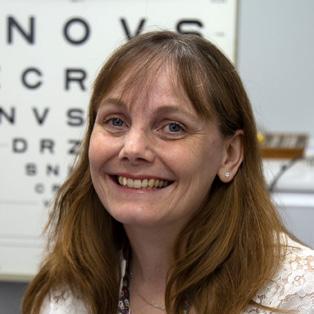
Any amount of time waiting to see an eye specialist can be a difficult period. You may have questions about what will happen at your appointment or about your potential eye condition, and it’s difficult to know where to turn. Everyone’s experience is different; your journey and needs are unique. Royal National Institute of Blind People (RNIB) is here to support you at every step.
If you’re worried about any aspect of your eyesight and haven’t already seen an optometrist (often called ‘optician’), it’s important that you do. It’s the best way to check if your eyes are healthy and detect any problems early so that you can get any treatment you may need. On many occasions, nothing of concern is found, and you can be quickly reassured. At least 50% of sight loss can be avoided if eye conditions are detected early.
Everyone should have a routine eye test at least every two years. Particularly as you get older, you might need to get your eyes checked more often — or if you have other factors that put you at increased risk of developing a particular eye condition.
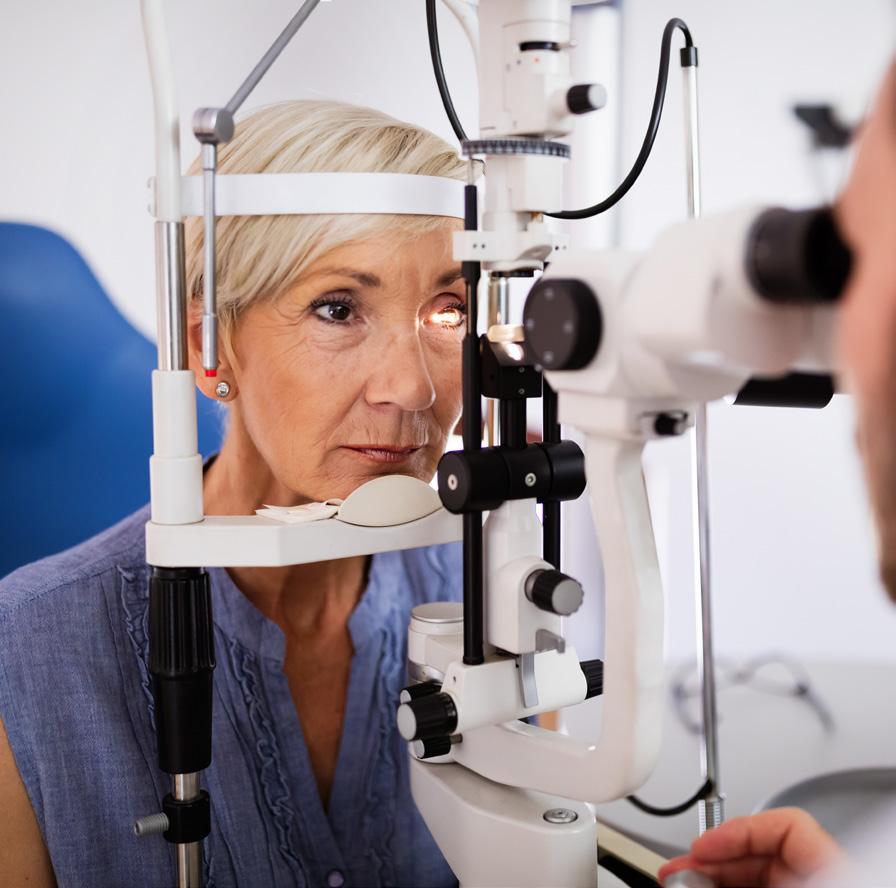
If your optometrist thinks there may be a problem with your eyes that needs more investigation or possibly treatment, they’ll refer you to the right person: a specialist optometrist, hospital eye clinic or your GP. When you are waiting for a possible diagnosis, the sense of not knowing can impact many areas of your life: employment; going out; social activities. This National Eye Health Week (18–24 September), RNIB has put together a set of resources to help anyone waiting for a possible diagnosis.
No one should go through an eye condition diagnosis without support, so RNIB has created resources bringing together information about services, emotional support and practical advice for attending hospital appointments and staying independent to help give you confidence as you wait.

Diagnosis can be an emotional experience. It often leaves people feeling confused, overwhelmed and anxious about what comes next. Waiting isn’t easy; but by reaching people as early as possible in their sight loss journey, they can be empowered with information and support to wait well.
WRITTEN BY David Cartwright Optometrist and Chair, Eye Health UK
Everyone’s experience is different; your journey and needs are unique.WRITTEN BY Louise Gow Clinical Lead for Eye Health, Optometry and Low Vision Service, RNIB (Royal National Institute of Blind People)